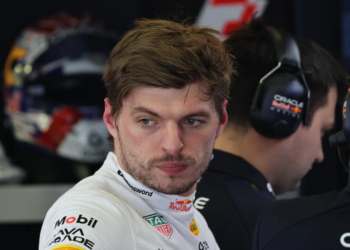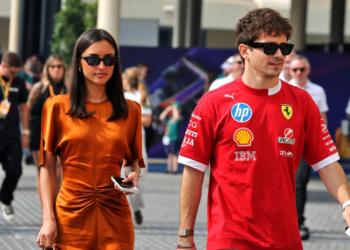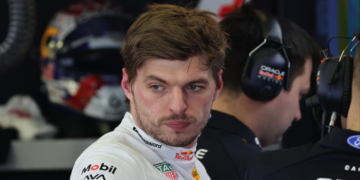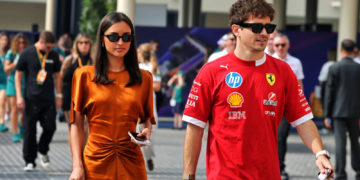Formula 1, or F1, is a high-octane race that attracts millions of fans worldwide. The sport centres on the drivers’ incredible speed and skills. Amazing athletes with exceptional car control, lightning-fast responses, and the capacity to make wise decisions excite fans all around the globe.
The enormous popularity of Formula 1 may be traced mainly to the exhilarating mix of speed and skill shown by the drivers and the sport’s rich historical relevance. Their daring overtakes and shrewd tactics as they traverse the challenging racing tracks at incredible speeds keep the spectators on the edge of their seats. Because of the thrill it brings, including a chance to bet and win, F1 fans often rate it as their favourite series. And if you enjoy betting and gambling in general, experience in 1 dollar deposit casinos may be an interesting one for you.
Important skills of an F1 champion
What distinguishes a Formula 1 World Champion like Max Verstappen, Lewis Hamilton, Michael Schumacher, or Nico Rosberg from a competent driver like Daniel Ricciardo or Charles Leclerc, who has never won an FIA World Championship? It is all about skills and strategies. While this is not a complete list, it includes many essential skills required for success at high-speed racing in F1:
- High mental strength
- Physical fitness
- Neck strength
- Fast response time
- Spatial awareness
- Endurance
- Precision and discipline
- Communication skills
High mental strength
Drivers in Formula 1 must be able to concentrate intensively, stay calm under pressure, and make split-second judgments. High mental strength is key to racing champions’ many Olympic gold medal triumphs. Many of the top F1 world champions have been shown to be amongst of the most mentally strong people around.
Physical fitness
A Formula 1 driver must be in top physical condition to endure the tremendous G-forces they would face while driving. In their training strategy, cardiovascular fitness, strength, and flexibility training are all given equal weight.

Neck strength
Because it carries the weight of the driver’s head when turning at high speeds, the driver’s neck is one of the most vital portions of the body. Drivers must have strong neck muscles to maintain their heads properly and avoid whiplash.
Fast response time
Formula 1 drivers must have lightning-fast reflexes and responses to make split-second judgments and avoid crashes. Many top Formula 1 champions are reputed to have one of the quickest response rates in the world.
Spatial awareness
To safely manage tight turns and restricted lanes, race car drivers must be aware of their surroundings and familiar with the dimensions of their cars. As a result, they must have excellent spatial awareness.
Endurance
Many consider Formula 1 racing one of the most emotionally and physically demanding sports. To endure the immense speeds and G-forces experienced by F1 drivers, they must have high endurance levels, including very strong neck and core muscles. Drivers’ high speeds and G-forces are directly responsible for these rigorous physical needs.
Precision and discipline
A driver’s ability to properly operate the car and foresee how it will react to various inputs is critical to finishing the points in Formula 1 racing. Also, Formula 1 drivers must be incredibly disciplined in their training, diet, and mental preparation to compete at the highest level.
Communication skills
It is critical in Formula 1 for the driver and team to be able to communicate freely and effectively. To devise the best plan, the drivers must be able to offer thorough feedback on the car’s performance and collaborate with the rest of the team.
Strategies of high-speed racing in F1
Strategy is made up of 2% execution and 98% planning. While Formula 1 cars are super-fast in a straight line, they are exceptionally faster around a corner. Professional racers devise the following strategies to succeed in the sport:

Intense physical training
The physical fitness of a driver becomes critical while making abrupt manoeuvres at high speeds. During turns, drivers face significant g-forces, which may put much pressure on their bodies.
In addition to being able to endure the physical demands of cornering, Formula 1 drivers must have a high tolerance for heat in the cockpit. Dehydration and weariness may occur if the inside temperature of a vehicle reaches 50o C (approx. 122o F).
Formula 1 drivers engage in rigorous physical training to prepare for the rigours of the sport. They work on strengthening their strength, endurance, and flexibility to prepare for the rigours of racing. Some truck drivers hire personal trainers and dietitians to be physically healthy during their shifts. An F1 driver’s body is subjected to G-forces of up to 5g daily. Due to their immense strain, drivers must have superhuman strength, stamina, and reflexes.
Boosting the heart and blood vessels
Due to the tremendous G-forces experienced during races, Formula 1 drivers must have healthy hearts to compete. During the race, they must maintain a constant heart rate of 170 beats per minute. They do this by regularly engaging in strenuous aerobic sports such as running, cycling, and swimming.
Muscle-building workouts
A Formula 1 driver’s fitness routine should naturally prioritize strength training. To withstand the G-forces experienced during spins and braking, they must have strong arm, shoulder, and back muscles. They do workouts such as deadlifts, squats, and bench presses to gain muscle and strength.
Formula 1 drivers concentrate on core workouts and weight training to enhance their stability and balance. Planks, crunches, and Russian twists are among the exercises provided. They also train hard to strengthen the muscles in their necks to endure the G-forces encountered while racing.
Nutrition
A Formula 1 driver’s training routine needs a healthy diet. To perform well, they must eat a well-balanced, diverse diet that contains all the nutrients their bodies need. This recipe has a lot of protein, complex carbs, and healthy fats. They must keep hydrated throughout the races to perform at their best.
Conclusion
Formula 1, the world’s top category of single-seater automobile racing, is more than simply a high-stakes race of speed and ability. This sport requires a high level of skills and strategies. Formula 1 car races are prevalent because they are exciting to watch and highlight the drivers’ extraordinary skills. The breath-taking performance keeps the audience on the edge of their seats because of the car’s high speeds, which regularly reach 320 kilometres per hour.
The joy of watching a race increases when drivers traverse complex curves and perform accurate overtaking manoeuvres. The extraordinary level of ability and daring necessary to pilot these enormous vehicles captivates viewers all around the globe.








